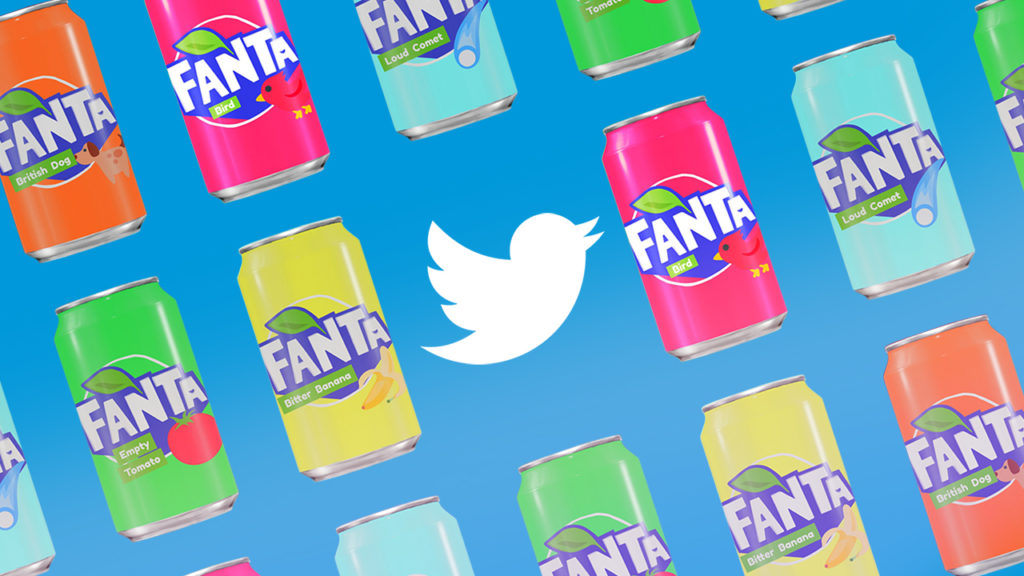A Twitter bot is inventing strange flavors of Fanta, reminding marketers that anyone can hijack a brand’s image for better or worse in the social space.
Consumers may not be able to try “Noisy Eggplant” or “Communist Blowfish” Fanta anytime soon, but they can visualize the flavors thanks to a Twitter bot that appeared over the weekend.
Fun Fearless Fake Fanta combines adjectives and emoji to generate fictitious soda offerings. The bot tweets out the resulting combination along with a generated soda can design.
https://twitter.com/fakefantas/status/998208793463984128
The Twitter bot was created by Laura González, a front-end developer based out of London that goes by the Twitter handle @freezydorito.
“I like to think of online brands as characters or celebrities in a way,” González told AListDaily. “At the end of the day, they are a character with a voice and a personality.”
The bot was inspired by a “particularly foul tasting” bottle of Fanta Zero, she said, that turned out to have carrot and pumpkin in the orange-flavored drink. González began creating a mock-up of the flavor combination in Photoshop, then realized it would make a fun Twitter bot instead.
Gonzáles said that creating an online brand persona makes it more difficult to control, but brands can respond in different ways.
“I just sort of expect to wake up tomorrow and have a takedown request from Coca-Cola, if I’m being honest,” she laughed, “but I would expect a ‘funnier’ online brand like Wendy’s after the nugget thing to play along.”
González has created other bots that poke fun at marketing, such as taking random headlines and adding “And That’s A Big Opportunity For Brands.” While most tweets become nonsensical, a few border on the profound or creepy.
https://twitter.com/goodbrandposts/status/897206423737831426
Other bots in Gonzales’ collection include a random Pokémon status generator, nonsensical romance advice and fake choices overlayed onto video game screenshots.
“I guess in today’s super online world, ‘brand’ has become sort of meaningless as a word,” Gonzáles reflected. “Even people have ended up running a personal brand of sorts, so I like to poke fun at that.”
Online audiences often take a brand image and give it meaning, with both positive and negative effects. Proctor and Gamble has backpedaled against the poisonous trend of eating Tide Pods, for example, but Hamburger Helper generated over $93,000 in earned media value when a Twitter user questioned its mascot’s skeletal structure.
